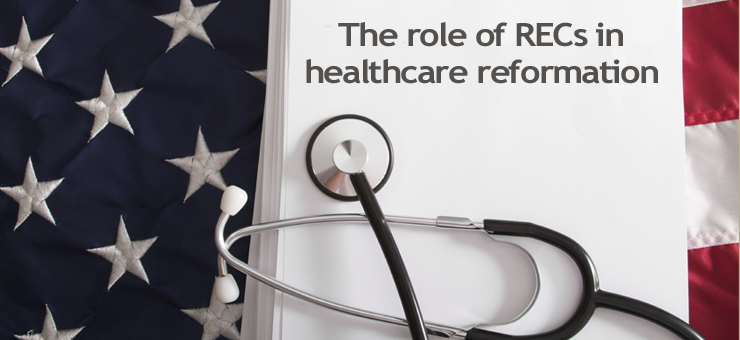The Healthcare industry is constantly innovating, and the Regional Extensive Centers (RECs) represent one of these innovations. RECs were established in 2010, with a total budget of $643 million, to be spent over a period of four years. The goal, set for these information exchange centers, was to spread technical guidance and information on best practices to at least 20% of the small healthcare providers, in their particular geographic areas, and help them become meaningful use certified EHR users by 2014.
Why RECs are only focused on small scale healthcare providers and hospitals? It is because these providers play a pivotal role in the overall transformation of the national health care delivery system. There is a far greater number of small to medium size healthcare practices than large hospitals. The need to improve them was foreseen by the government, and therefore, the reform started.
Reforming an institution takes time. The process has been really slow. There is no doubt that IT is the future of healthcare. Therefore, one of the roles of RECs is to target small healthcare practices and hospitals, who have been reluctant in making the switch from paper-based medical practice to electronic medical records. During this process the main concerns for providers have been the cost, the time required for training, and the difficulties in implementation. RECs have aimed to relieve the providers of these burdens by making informed decisions for them.
President Obama has already shown his commitment to making the REC program a success. He quite rightly sees technology as the future, and has therefore tasked the RECs with assessing provider needs, helping them negotiate with vendors and to assist them in improving their workflows. RECs also inform the providers of the government’s Meaningful Use Incentive program, so that they may benefit from switching to EHR.
RECs are committed to the improvement of healthcare industry. Most of the RECs offer on-site or in-person support. RECs provide free or paid subscriptions, depending on the services being offered. REC program is a government sponsored initiative, therefore healthcare providers can get massive discounts. This commitment to transforming the healthcare industry landscape into an electronic one, is a key objective of the REC initiative.
Telligen HITREC in Iowa has been helping practices since 2010. Their model of providing service is divided into three categories, in order to be as cost efficient as possible. One of the divisions is called ‘gold service’ and it is subsidized to 90%. Charges for a private EHR consultant, are much higher. RECs also make their pricing model flexible, and some cases provide free service. In an effort to provide technical assistance, guidance, consulting, and education to local providers in adopting electronic health records, and as a result improve their standard of delivering care to patients, CureMD has partnered with many Regional Extension Centers all across US. Over a period of a few years, RECs have established themselves as valuable trusted advisors for primary care. They are committed to making it easier for providers to adopt EHR. At the end of the day, RECs real goal is to help providers provide quality care to the patients.

Join the Discussion!